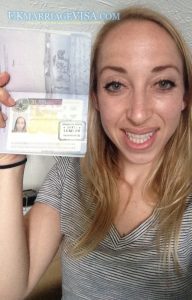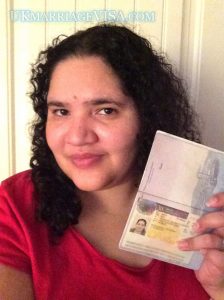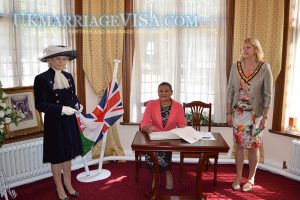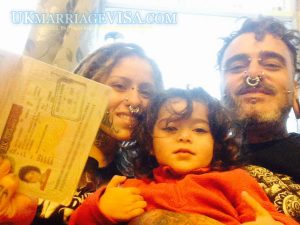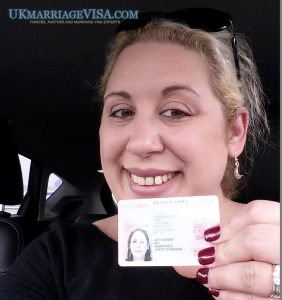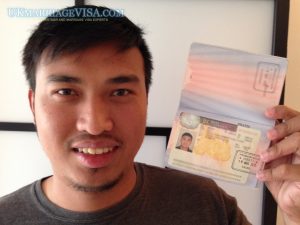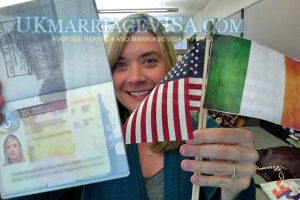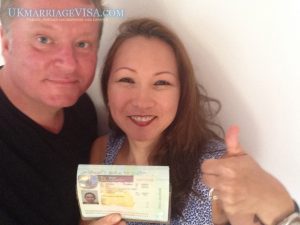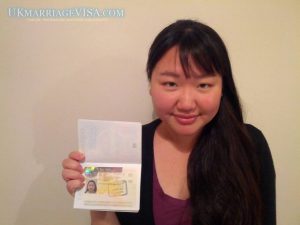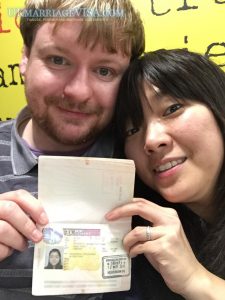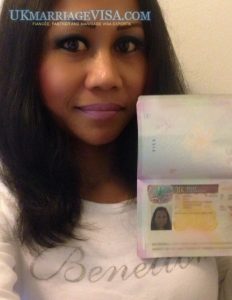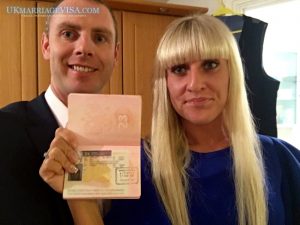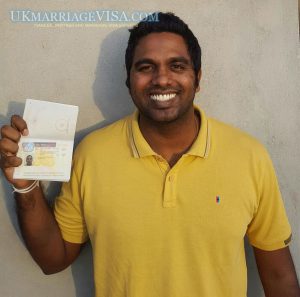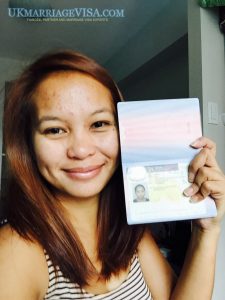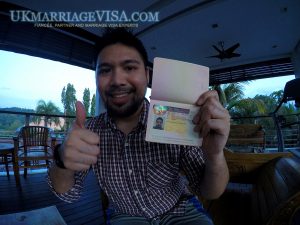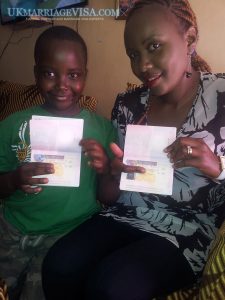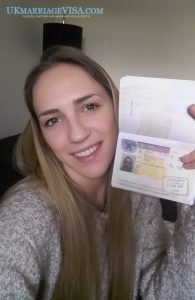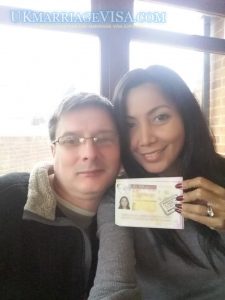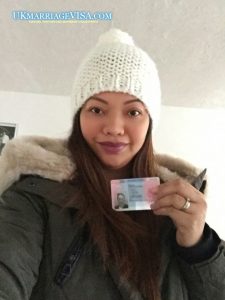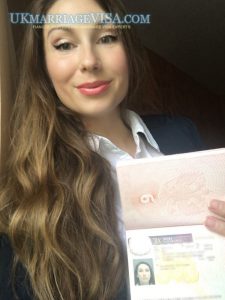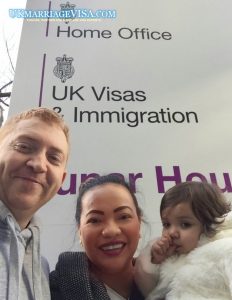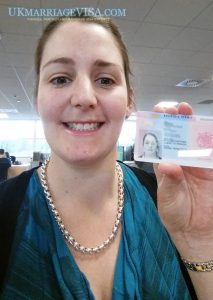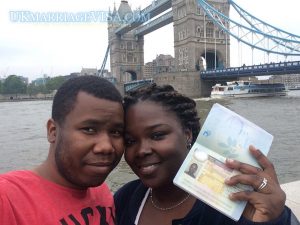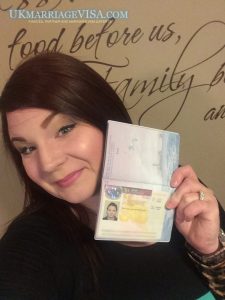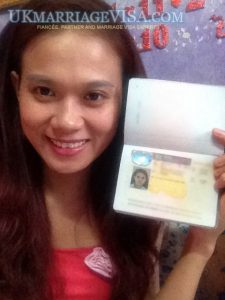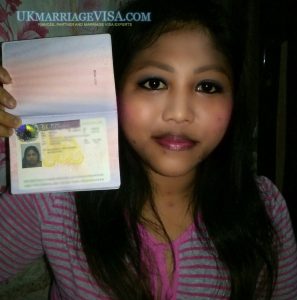Applying for a spouse/partner visa (further leave to remain) from inside the UK
In certain situations, a foreign partner or spouse of a British citizen or UK permanent resident (including Irish citizens and EEA nationals with settled or pre-settled status in the UK) may apply for a family visa or further leave to remain (FLRm) from within the UK. The applicant must be the husband, wife, unmarried (de facto) or civil partner of a UK citizen or legal permanent resident. All rules governing whether a relationship is durable and subsisting are the same for all relationships, whether recognised through a legal ceremony or not. The applicant must be physically in the UK when the application is submitted to the UK Visas & Immigration (UKVI) and this must predate the expiry of any existing permission to stay.
Generally, there is no grace period for FLR applications. However, in some cases a late in country family visa application may be accepted if the applicant can demonstrate that their situation truly is exceptional and they were unable to make a timely application due to circumstances beyond their control. Therefore, it is advisable to apply for further leave to remain under the partnership policy before the expiry date of the current visa, as only a small percentage of late FLR applications are accepted for processing by the Home Office.
FLR(M) basic eligibility requirements
In most cases a partnership or marriage-based further leave to remain (FLRm) application will not be allowed depending on the applicant’s immigration status in the UK. If the permission to stay period on the original visa was less than six months (with the exception of fiancee or proposed civil partner visas issued under the settlement category) an extension application cannot be made inside the UK. This also applies to those in possession of a six-month visitor visa or any other short term temporary visa. Anyone in breach of UK Immigration Rules will not be allowed to apply for further leave to remain, although overstays of less than 14 days may be eligible to switch to the spousal or partner visa category without leaving the country, if there is a “good reason” for submitting a late immigration application to the UK Visas & Immigration.
Currently, there are two routes for those wishing to obtain settlement in the UK. The five-year route will be the one suitable for the majority of applicants and the requirements are outlined below. The 10-year route will be necessary for those who fail to meet certain eligibility requirements, but who have special circumstances which make them otherwise eligible to apply. In either case, applicants who fail to meet the requirements will not be granted a visa and refunds on application fees are not given. Therefore, it is recommended that the rules pertaining to any extension application are read carefully and followed diligently.
There are a number of requirements that must be met before a spouse or partner of a British citizen or UK legal permanent resident is granted further leave to remain (FLRm). Both partners must be aged 18 or over on the date of application. The applicant’s partner must be a British Citizen or, if not, must be present and settled in the UK – in other words, has right of abode or indefinite leave to remain (ILR), which includes settled or pre-settled status under EU settlement scheme. The latter applies to EEA nationals who lived in the UK before Brexit.
There are specific UK laws that forbid marriage between certain close relatives and these laws must be followed before a family visa/FLR can be granted. In the case of arranged marriages, the two partners must have met each other in person and the relationship must be genuine and subsisting. The word subsisting in this context is the legal meaning, that it is ‘remaining in effect’. In the case of people already married or in a civil partnership, this must be valid under UK law. If no marriage or civil ceremony has taken place, the two parties must have been in a relationship considered the equivalent of marriage or civil partnership for at least two years before the date of application (de facto partners). With a few specific exceptions (certain polygamous relationships, for example) any previous relationships must have irretrievably broken down. There must be an intention between the partners that they will be living together permanently in the UK. There are also specific English language and financial requirements which apply to all foreign nationals wishing to extend their stay in the UK under family route.
If the applicant is able to meet the requirements, permission may be granted for them to live in the UK initially for 30 months with an option to apply for another extension to complete their five-year probationary period in the UK to qualify for settlement (indefinite leave to remain or ILR). Eventually, the spouse visa/FLR holder may be eligible to apply for British citizenship.
FLR application process
Historically, the UKVI used to offer two submission methods. Previously, in country family visa applications could be made by post or in person. Applying in person was subject to a higher fee but it had the advantage that the applicant was given an answer on the same day. Postal applications could take up to six months to process. However, these submission methods no longer exist, as the UKVI introduced a new application process a number of years ago. Currently, it is only possible to apply for a UK family visa/FLR online on the official Home Office website with most paper applications being suspended. Preparing the documents for upload is a grueling and time-consuming task, as the UKVI online application platform has certain limitations. Re-sizing, renaming individual documents and merging them into groups takes a lot of time. However, we provide this service as part of our full package to ensure the best possible experience for our clients. As our clients say, we leave no stone unturned.
The applicant should not leave the UK while their partner or spouse visa FLR application is being processed. The application will be cancelled if the applicant takes a trip outside the UK.
Evidential requirements
There are very specific Home Office requirements that an applicant needs to be aware of before a spouse/partner FLR(M) can be granted. Both the applicant and their sponsor must demonstrate that their relationship is genuine and subsisting and not one of ‘convenience’. The partners will need to prove that they are in a current long-term relationship, living together and sharing financial responsibilities. Typical documents which can be used to show this are joint mortgage or tenancy agreements, a joint bank account, or utility bills bearing both names. It will be necessary to show that both partners have visited the other’s home country and, where appropriate, they have met the other’s family and that there are longstanding plans to live together in the UK. Arranged marriages do present a slightly different situation but in most cases it should be possible to prove that both parties are consenting partners in the marriage and that they both agree with any plans made by their families in regard to it.
Additional investigations
There are certain circumstances in which it might become necessary for UK Visas and Immigration (UKVI) to conduct an investigation into whether the marriage or partnership is genuine. While the investigations are underway, the visa decision will be put on hold. Registry Offices in the UK occasionally have reasons to believe that a marriage is a sham, and should that be the case, an investigation is always undertaken. The same applies if there is reason to suspect that one of the partners in the relationship is being forced into the application or if they have previously been found to be participating in a sham or forced marriage. Family history is also taken into account and anyone who has a sibling who has been forced into marriage may be investigated. People who have been in previous relationships requiring a UK marriage or partner visa which have broken down quickly are likely to find that applications are subject to extra investigation, as will those who have been sponsored, or been a sponsor to other people themselves, after the apparent start of the current relationship.
Other than suspicions that the marriage might not be genuine, there are also other circumstances which may potentially trigger further investigation. If either partner appears through learning difficulty or other impairment to be unable to consent to the marriage, partnership or relationship, an investigation will be made. This also applies to any situation in which either partner appears to be subject to restrictions such as being unable to leave the house or not being given proper financial freedoms. Sometimes it is the case that money has changed hands to make one partner’s consent to the marriage or partnership and this is clearly not allowed, unless it is a dowry required by the culture of one or both partners.
Occasionally, it is suspected that the partnership is not genuine because the two people concerned do not seem to know much about each other or their cultures. It is likely that anyone who doesn’t have reasonable personal knowledge of the other person will be investigated further. This includes details such as birthday and details of childhood or current employment, but could cover any aspect of life. There must be a joint language (not necessarily English) in which both can communicate and there also needs to be firm and unanimous plans for living arrangements in the UK. Without cost being an issue, a cursory or non-existent ceremony or celebration of the marriage or partnership may result in further investigation, as will a failure to live together sharing a home (unless there are good reasons) or financial arrangements. An automatic investigation may also be required if the applicant has been previously refused a UK visa or permission to enter or stay in another category.
Financial requirements
Since July 2012 there have been financial rules in place which must be met by anyone applying for a UK marriage or partner visa or settlement. These threshold earnings can be met through a variety of ways, but the sum itself is not subject to negotiation. Effective 11 April 2024, the sponsoring partner must have an income of at least £29,000 per annum (£18,600 prior to 11 April 2024). Unlike the old policy, the minimum income threshold does not increase if there are also dependent children applying with the principal applicant after 11 April 2024. Documentary proof will be needed that the income is being received, although if the sponsor is in receipt of UK disability or carer’s allowance, the £29,000 threshold does not need to be met. Instead, a sponsor must meet certain maintenance requirements and prove satisfactorily that they can support their partner and children without recourse to additional public funds.
The income required to meet the threshold can come from a variety of different sources or a mixture of sources, but cannot be accepted if it is below the minimum amount. If the applicant is in the UK on a visa that allows them to work, and employed or self-employed at the time of application, their income can be counted towards the threshold. The income from the sponsor can be from employment or self-employment. Pensions, either state or private, can also be taken into account as can maternity and bereavement benefits, if received in the UK. Cash savings are taken into account but the amount varies, depending on circumstances.
Accommodation requirements
Apart from the minimum threshold requirement, there is also a necessity to prove that suitable accommodation is available for the applicant, partner and any dependent children. Essentially, ‘suitable’ means that the accommodation must not be overcrowded. Living with extended family members is permitted as long as this does not result in overcrowding. There are guidelines as to what constitutes overcrowding, much of the calculation being based on floor area, but essentially the ‘rule’ is two people in a one roomed dwelling, three in a home with two rooms, five in a three-roomed home and 7.5 in a four roomed house or flat. The ‘half’ is possible because children between one and ten years of age count as half. Babies count as zero. Homes above five rooms – counting all rooms except bathrooms – can have two people per room. This is not a definitive rule, but will be used to make a quick calculation before looking into the situation in more depth when other issues such as number of bathrooms will be considered. The importance of the Home Office accommodation requirement cannot be overstated, as family visa/FLR applications that do not meet this specific criteria will normally be refused on accommodation grounds without any reference to the applicant or their sponsor.
English language requirement
Nearly all foreign nationals wishing to apply to enter or remain in the UK as a spouse or partner of a British Citizen or UK permanent resident must meet the English language requirement. There are some people who will be able to show their knowledge of English without taking the test, such as applicants who have a degree or equivalent qualification in any subject, as long as the teaching was all in English. Applicants from majority English speaking countries, as defined by UK Visas and Immigration (UKVI), are also not required to take the English language test. There are also other reasons why some people may be exempt from taking the test. If an application is made by someone over 65 or someone who has a physical or mental impairment which would make passing the test difficult, the test is waived. There is also consideration given to anyone who can show exceptional compassionate circumstances which would prevent them from meeting the minimum English language requirement.
Suitability requirements
There are certain circumstances which will result in any application for a spouse/partner FLR(M) being refused. Because there are no refunds available for any unsuccessful applications, applicants are urged to check carefully before applying for a UK family visa, if they feel they may not meet one or more of the requirements. Many of these exclusion conditions hinge on whether an applicant is considered unsuitable for reasons of character, and especially in the case of those whom the Home Secretary has decided should be excluded in the public interest. This can be for various reasons, including personal conduct, association with others or because the applicant has been sentenced to more than 12 months in prison. Anyone currently under a deportation order at the time of application will be automatically refused leave to remain. Any applicant who has failed to attend an interview that has been arranged or has failed to provide information, including medical reports, will be refused. Medical reasons which preclude admission to the UK will also result in refusal – this includes an active TB infection. Anyone who has lied on an application or has falsified documents or withheld information will not have their application accepted. Unpaid fines or charges, specifically NHS charges of more than £1000 will result in refusal. There are specific maintenance and accommodation undertakings which are occasionally requested by the UK Visas & Immigration (UKVI) and failure to comply with these requests means that the applicant will most likely have their UK partner or spouse family visa request turned down.
Biometric Residence Permit (BRP)
If a UK family visa FLR application is successful, a Biometric Residence Permit (BRP) will be issued. Since 2008 this has replaced the visa label/vignette which was placed in the applicant’s passport. The actual plastic card will be sent by post within five days of the application being accepted. The Biometric Residence Permit will carry details of fingerprints and a photograph of the face which will be used as identification of the holder. It also carries details of date of birth as well as the holder’s name, immigration status and entitlement to remain and work in the UK. Applicants are advised to take great care of this important official document. Change of address or circumstances must be reported and any loss or theft must also be reported immediately. Failure to do so may result in a fine of £1000 and/or curtailment of right to remain.
BRP cards will no longer be issued after 31 December 2024, as the Home Office is moving from physical BRP cards to digital immigration status. It is expected that all partner and spouse visa holders living in the UK will have access to their immigration status online by the end of 2024. Meanwhile, the Home Office will continue to issue BRP cards which expire sooner than the actual leave expires. BPR cards can be securely destroyed after 31 December 2024.
Free immigration consultation
Please feel free to contact us to arrange a detailed consultation with one of our UK immigration law practitioners to find out if your partner or spouse is eligible to apply for further leave to remain (FLRm) in the UK. One of our consultants will contact you within 24 hours of receipt of your online assessment form, which you can complete on the right hand side. The initial consultation is free of charge and absolutely non-obligatory.
Kemp House
152-160 City Road
London EC1V 2NX


